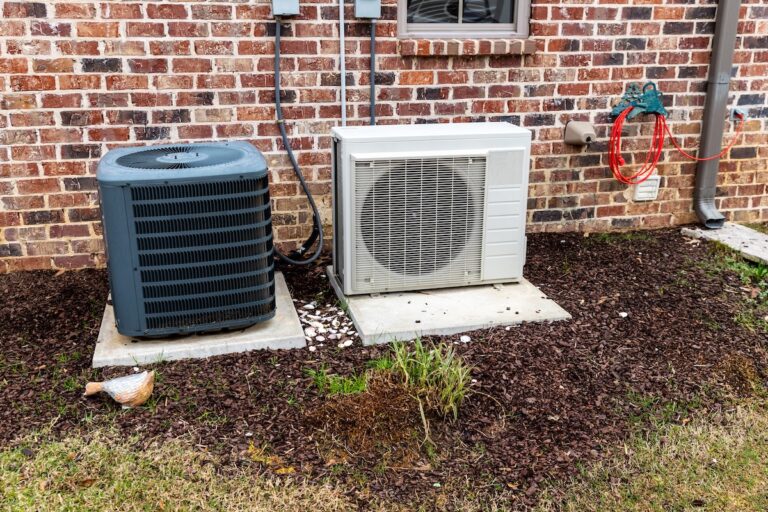
Choosing the right air conditioning unit for your home means understanding more than just size and price. The AC efficiency rating is one of the most important factors that will impact your comfort, energy bills, and long-term satisfaction with your purchase. Whether you’re replacing an old system or installing your first central air unit, knowing how to read and compare efficiency ratings can save you thousands of dollars over the life of your system.
This comprehensive guide will walk you through everything you need to know about AC efficiency ratings, including:
- Understanding SEER, EER, and HSPF ratings
- Key factors that impact AC efficiency performance
- What to look for when shopping for a new high-efficiency unit
- Common mistakes to avoid when comparing efficiency ratings
🤔 Understanding AC Efficiency Ratings

Air conditioning efficiency ratings measure how effectively your system converts electricity into cooling power. The higher the rating, the more efficient your unit operates, which translates to lower energy costs and reduced environmental impact.
The most common AC efficiency rating you’ll encounter is SEER (Seasonal Energy Efficiency Ratio). This rating measures the cooling output during a typical cooling season divided by the total electric energy input during the same period. Think of it like miles per gallon for your car – the higher the SEER rating, the more cooling you get for each dollar spent on electricity.
Factors That Impact AC Efficiency Performance
Understanding AC efficiency ratings is just the beginning. Several factors influence how efficiently your system actually operates in your home:
- Proper Sizing and Installation: An incorrectly sized AC unit reduces efficiency and comfort. Oversized units cycle too often, while undersized ones struggle to cool your home. Professional load calculations and proper installation ensure optimal performance.
- Ductwork Quality: Leaky or poorly insulated ducts can lower efficiency by 20-30%. Proper sealing and insulation are critical to achieving your system’s rated efficiency.
- Regular Maintenance: Tasks like changing air filters monthly can boost efficiency by 5-15%. Professional annual maintenance helps keep your system running at peak performance.
- Home Insulation and Air Sealing: Poor insulation and air leaks increase your AC’s workload, reducing efficiency. Addressing these issues ensures you get the most out of your system.
SEER vs. EER: What’s the Difference?
While SEER measures seasonal efficiency, EER (Energy Efficiency Ratio) measures efficiency at a specific outdoor temperature, typically 95°F. EER provides a snapshot of how your system performs during peak cooling conditions, which is particularly important if you live in an area with extremely hot summers.
For heat pumps, you’ll also see HSPF (Heating Seasonal Performance Factor), which measures heating efficiency during the winter months. A good HSPF rating is typically 8.0 or higher for modern heat pump systems.
🔎 7 Things to Look for in a New High-Efficiency AC Unit

When shopping for a new air conditioning system, focus on these key features and specifications:
1. SEER Rating of 16 or Higher
Look for units with SEER ratings of 16 or higher for the best balance of efficiency and cost-effectiveness. While 20+ SEER units are available, the additional cost may not be justified unless you have specific circumstances like extremely high cooling loads or want maximum efficiency.
2. Variable Speed Technology
Variable speed compressors and fans adjust their operation based on cooling demand, providing better comfort and efficiency than single-speed systems. These systems run longer at lower speeds, removing more humidity and maintaining more consistent temperatures.
3. Two-Stage Cooling
Two-stage systems operate at different capacity levels, running at lower capacity during mild weather and full capacity during peak demand. This provides better efficiency and comfort compared to single-stage systems that only operate at full capacity.
4. Advanced Controls and Smart Features
Modern high-efficiency units often include smart thermostats and advanced controls that optimize performance based on your schedule and preferences. These features can improve efficiency by 10-15% compared to basic programmable thermostats.
5. Quality Construction and Warranty
Look for units with durable construction, including corrosion-resistant coils and quality components. A comprehensive warranty, particularly on the compressor, indicates manufacturer confidence in the product’s longevity and performance.
6. Proper Refrigerant Type
Newer systems use R-410A refrigerant, which is more environmentally friendly than older R-22 systems. Some manufacturers are transitioning to even newer refrigerants that offer better efficiency and lower environmental impact.
7. ENERGY STAR Certification
ENERGY STAR certified units meet strict efficiency guidelines and often qualify for rebates and tax incentives. This certification provides assurance that you’re purchasing a high-quality, efficient system.
⚠️ Common Mistakes to Avoid

When evaluating AC efficiency ratings, avoid these common mistakes that can lead to poor performance and higher costs:
Don’t Focus Solely on SEER Ratings
While SEER ratings are important for efficiency, they don’t tell the full story. Consider your local climate and cooling needs, especially if you live in a humid area. A unit with a high SEER rating might struggle to manage humidity effectively, reducing overall comfort.
Avoid Cheap Units Without Research
Choosing the cheapest high-efficiency unit can backfire if the manufacturer has a poor reputation or offers limited warranty coverage. Look for well-built systems with strong service support to ensure reliability and long-term performance.
The Highest SEER Rating Isn’t Always Best
A high SEER rating doesn’t guarantee it’s the right fit. Factor in your budget, local weather conditions, and the system’s expected lifespan to find the most cost-effective and practical unit for your needs.
Never Skip Professional Load Calculations
Even the most efficient system will underperform if it’s the wrong size or poorly installed. Always rely on professional load calculations and expert installation to maximize efficiency and comfort.
👨🔧 Maximizing Your Investment in High-Efficiency Cooling
At Thelen Plumbing, Heating, and Air, we take pride in being the team you can trust for all your HVAC needs. With years of experience and a commitment to excellence, our certified technicians ensure your cooling system is not only energy-efficient but also perfectly tailored to your home and budget. From professional system selection and precise installation to ongoing maintenance, we’re here to provide reliable, cost-effective comfort year-round.
Ready to make the switch to a high-efficiency AC system? Contact us today to schedule your free consultation. Let us help you enjoy a cooler, more energy-efficient home this summer!
Unlock Our Limited-Time Deals!
Take advantage of our offers on AC tune-ups, new installs, repairs, and more.
We Can’t Wait to Help Your Home!
"*" indicates required fields





